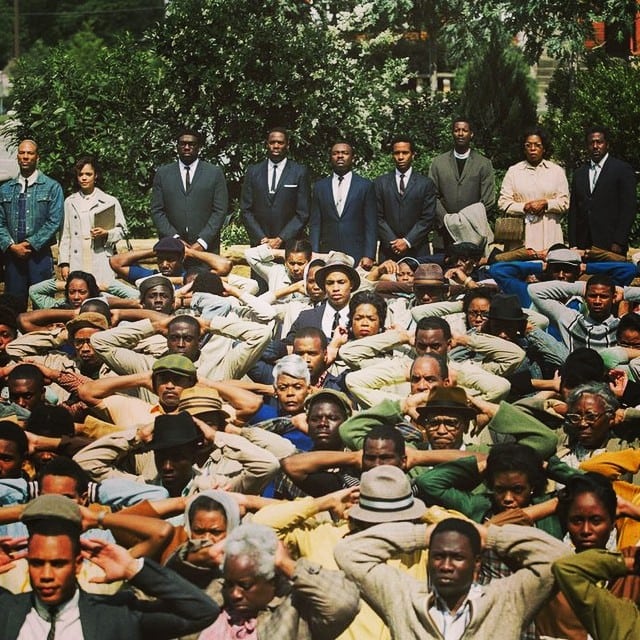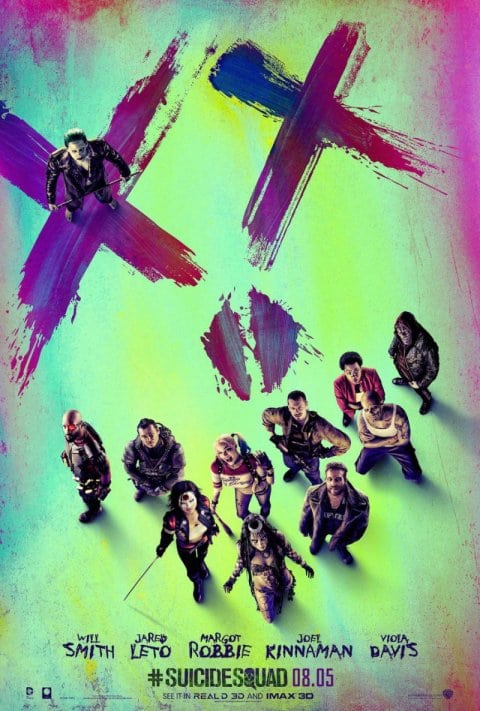Selma (2015)
Directed by: Ava DuVernay
Written by: Paul Webb
Starring: Andre Holland, Carmen Ejogo, Common, David Oyelowo, Giovanni Ribisi, Oprah Winfrey, Tim Roth, Tom Wilkinson, Trai Byers

Martin Luther King (David Oyelowo), leading the Civil Rights movement in America, campaigns for equal rights for all people in America. Though an act has been passed allowing everybody, regardless of creed or colour, to vote, in some states in the South the black community is still being barred from being able to register for the vote, excluding them from one of their fundamental human rights. In 1965, Martin Luther King leads a protest of people, who walk from Selma to Montgomery, protesting for the right to vote.
Right in time for Oscar season comes a film that would seem to be everything that the Academy would throw awards at. However, Selma has been surprisingly overlooked for awards glory. This is especially surprising considering how excellent the film is. More than just a cynical bid for awards glory, Selma is a powerful and distressing film about the power of people and the spirit of standing up for what is right.
Everybody has heard of Martin Luther King but the story of the march from Selma is perhaps lesser known. Rather than trying to make a biopic of King, Selma brings its focus down to a smaller, but no less important or powerful, section of his life, detailing the events in the Southern town. With King’s protestations apparently falling upon the deaf ears of the president Lyndon B. Johnson (Tom Wilkinson), a president who is sympathetic to the Civil Rights cause but who is not fully behind it, instead hoping that small concessions will appease the masses, he urges King to wait, with a condescending pat on the shoulder, something which King firmly believes he cannot. King and his confidants head to Selma to peacefully protest. The south being a notoriously racist part of America, they step into the vipers nest to help the people who most need it. The state Governor George Wallace (Tim Roth), seen once speechifying in front of huge confederate flags like a Nazi rally but never falling completely into racist caricature, and violent sheriff Jim Clark (Stan Houston) do not welcome them, greeting their peaceful protest with violence and aggression. King and the rest of his team are intelligent protestors and know how to push the buttons and how to get themselves noticed. The first clash with police is one of the more distressing and affecting scenes you’ll see this year, and one which proved the same for the American people in 1965 as the clash was broadcast on television news. The film depicts the courage and fortitude of every day people standing up for their rights but is not afraid to show the other side, the arguments of force as people are pushed so far that they feel the need to pick up weapons and fight back. Selma shows the fear that the administration had of King and his movement, the fact of their constant surveillance reiterated to us as onscreen subtitles detail observations of King’s movements and wiretaps of his phone conversations, and it is depressing that considering recent news events in America, the shooting and murder of several black men at the hands of white police officers, Selma is still an extremely relevant story and film.
David Oyelowo is brilliant as Martin Luther King, a man trying his best to rally people to stand up for their rights but in a peaceful way. Oyelowo’s performance is measured and moving, showing a quiet power and genuine passion behind the cause, even as he and his family are beset by vicious threats, while remaining a magnetic presence on screen. King is now more seen as a figurehead rather than the man he was and director Ava DuVernay and Oyelowo dive deeper into the man behind the movement, showing you the family man trying to balance his life at home with the huge issues he tries to tackle. A man who is constantly under threat of violence and potential assassination but stands behind his peaceful convictions. They also show the quiet moments, when King is confronted by some of the terrible things that happen to people when they follow what he says, willingly standing in the face of violence and Oyelowo’s eyes show the wear and pain that causes him. Ava DuVernay guides the film along with a steady hand, letting the performances and script do most of the talking, only really showing her hand during pivotal moments of action and protest. She keeps the pace moving, never once letting the story drag. Some of the characters are a little underwritten, the film ultimately needing to choose to forge forwards in the plot rather than getting bogged down with the many people who helped orchestrate the event and push forward the movement, and you will perhaps be hard pushed to remember the names of many of the side players who appear, but this is a small quibble in what is a wholly admirable film.
Selma is a bold, moving, important and sometimes distressing film with some very strong performances and it is unfortunately still a story that is hugely relevant to American society. A tribute to those who stood up and suffered for their rights and the rights of others.







Be the first to comment